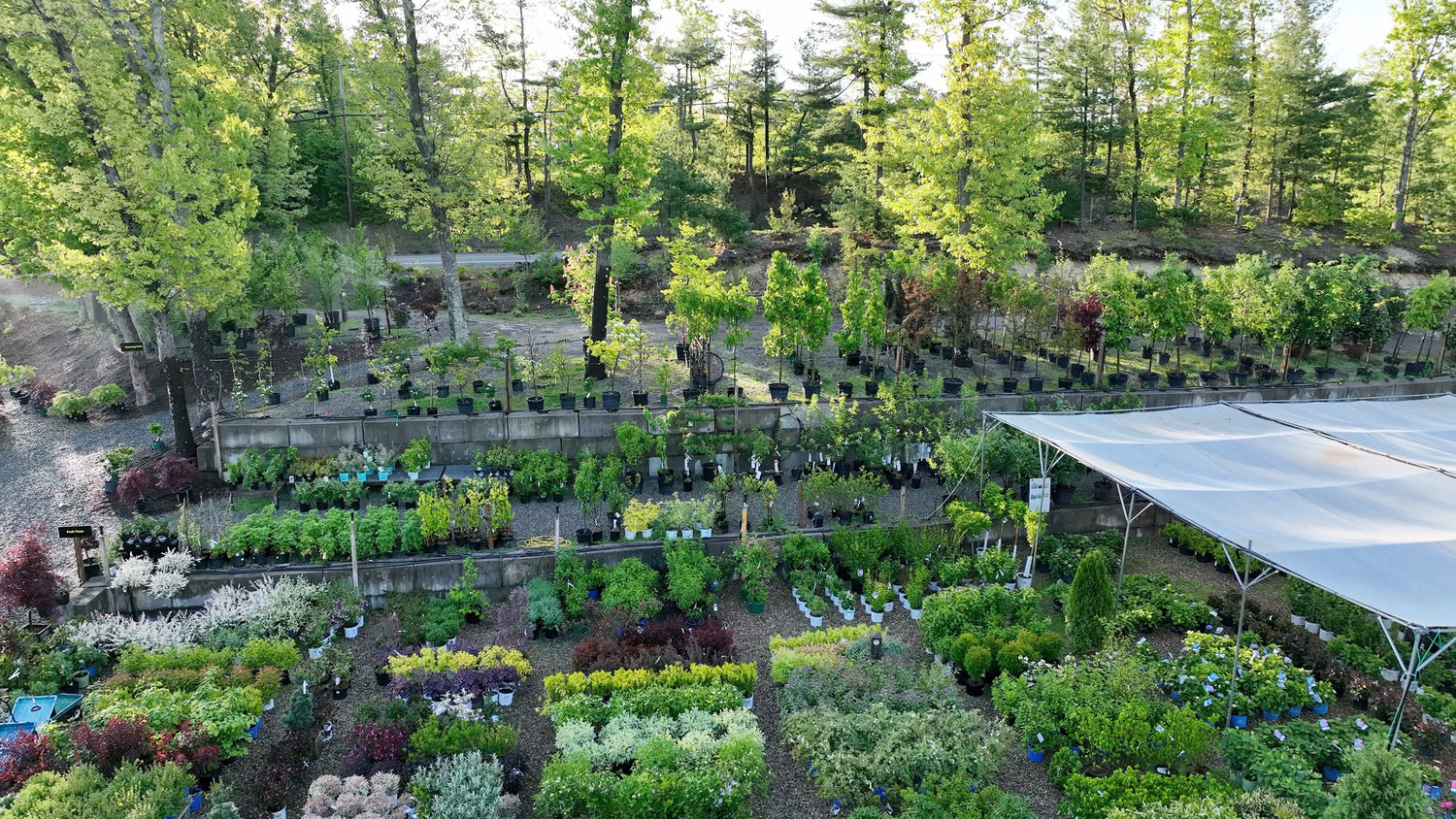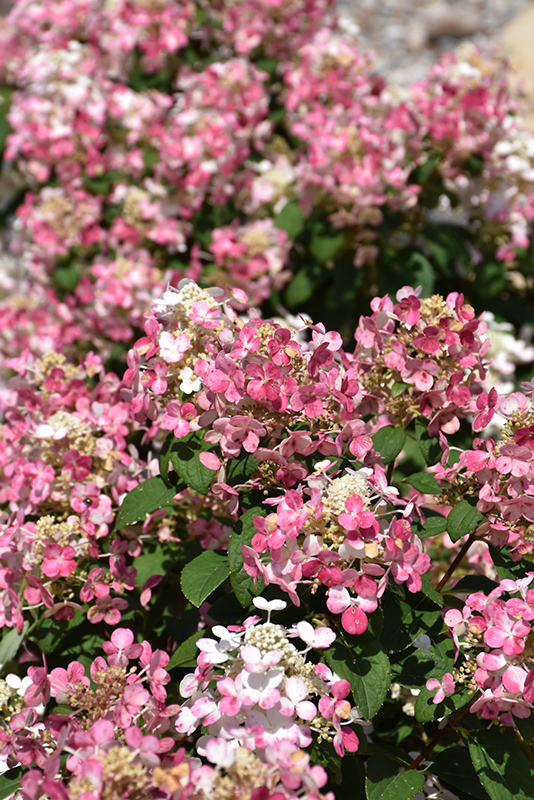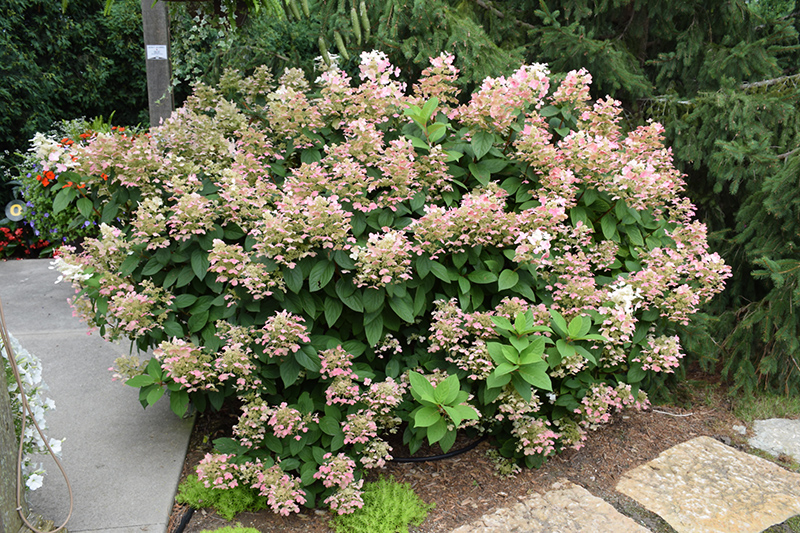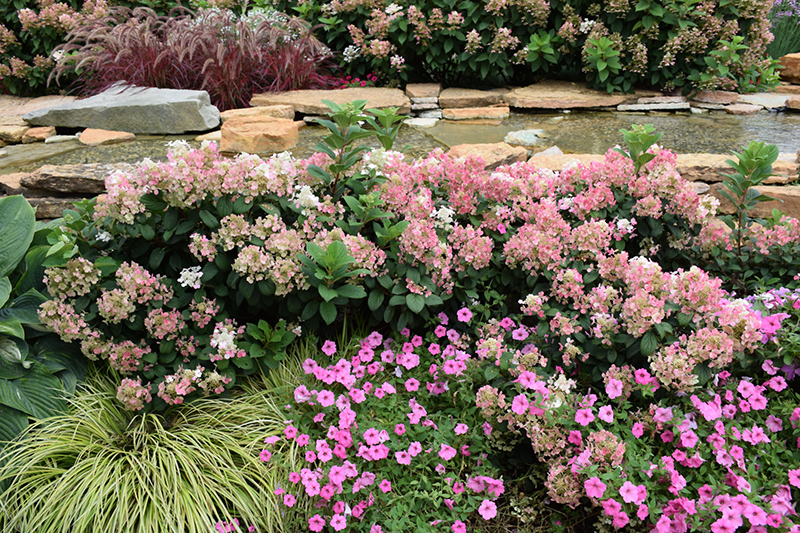Plant Guide
Little Quick Fire® Hydrangea
Hydrangea paniculata 'SMHPLQF'
Height: 4 feet
Spread: 4 feet
Sunlight:
![]()
![]()
![]()
Hardiness Zone: 3a
Brand: Proven Winners
Description:
A smaller version of Quick Fire, featuring large conical flower heads that start white and fade through pink to a rich rose lasting into fall; great for smaller spaces and containers
Ornamental Features
Little Quick Fire® Hydrangea features bold conical white flowers with pink overtones at the ends of the branches from early summer to early fall. The flowers are excellent for cutting. It has green deciduous foliage. The pointy leaves do not develop any appreciable fall color.
Landscape Attributes
Little Quick Fire® Hydrangea is a multi-stemmed deciduous shrub with an upright spreading habit of growth. Its relatively coarse texture can be used to stand it apart from other landscape plants with finer foliage.
This shrub will require occasional maintenance and upkeep, and is best pruned in late winter once the threat of extreme cold has passed. It has no significant negative characteristics.
Little Quick Fire® Hydrangea is recommended for the following landscape applications;
- Accent
- Mass Planting
- General Garden Use
- Container Planting
Planting & Growing
Little Quick Fire® Hydrangea will grow to be about 4 feet tall at maturity, with a spread of 4 feet. It tends to be a little leggy, with a typical clearance of 2 feet from the ground. It grows at a medium rate, and under ideal conditions can be expected to live for 40 years or more.
This shrub performs well in both full sun and full shade. It prefers to grow in average to moist conditions, and shouldn't be allowed to dry out. It is not particular as to soil type or pH. It is highly tolerant of urban pollution and will even thrive in inner city environments. Consider applying a thick mulch around the root zone in winter to protect it in exposed locations or colder microclimates. This is a selected variety of a species not originally from North America.
Little Quick Fire® Hydrangea makes a fine choice for the outdoor landscape, but it is also well-suited for use in outdoor pots and containers. With its upright habit of growth, it is best suited for use as a 'thriller' in the 'spiller-thriller-filler' container combination; plant it near the center of the pot, surrounded by smaller plants and those that spill over the edges. It is even sizeable enough that it can be grown alone in a suitable container. Note that when grown in a container, it may not perform exactly as indicated on the tag - this is to be expected. Also note that when growing plants in outdoor containers and baskets, they may require more frequent waterings than they would in the yard or garden.





